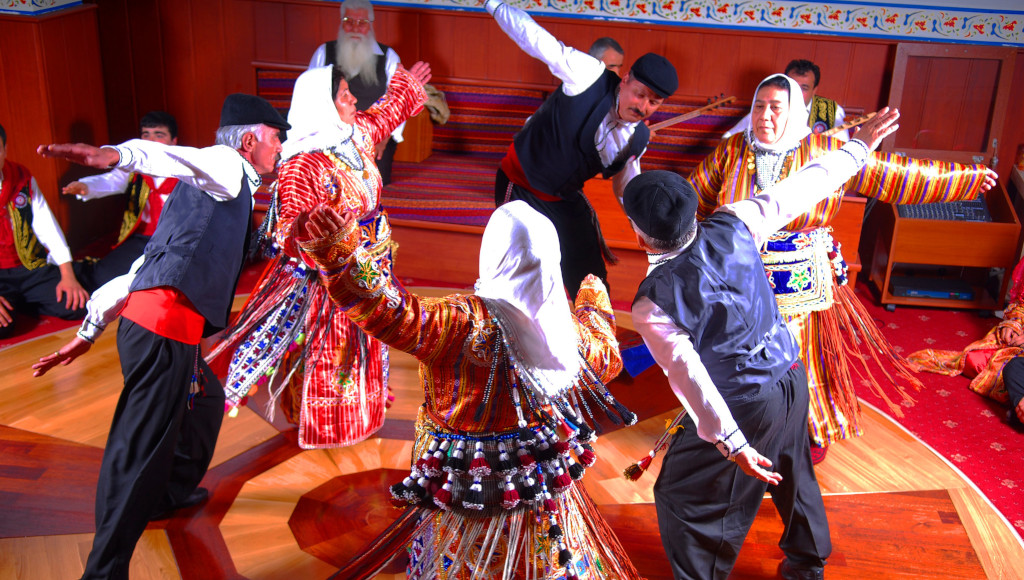According to a recent report by the United States Commission on International Religious Freedom (USCIRF), Alevis were the religious community that suffered the most attacks on religious property in Turkey between 2003 and 2022, followed by Protestants and Armenians.
In the report released on Monday, USCIRF examined threats to religious properties in Turkey, such as places of worship, religious institutions and cemeteries.
The research team conducted interviews with religious communities and an atheist association, investigated select sites of religious heritage and carried out field surveys in Bursa, Edirne, Elazığ, Diyarbakır, İzmir, Kayseri, Mardin and Trabzon provinces. In total, researchers evaluated 80 sites belonging to or built by Alevi, Armenian Apostolic, Armenian Catholic, Bulgarian Orthodox, Greek Orthodox, Jewish, Protestant, Sunni Muslim, Syriac Catholic and Syriac Orthodox communities, also conducting a survey of media outlets, including Agos, Avlaremoz, Birgün, Cumhuriyet, Diken, Hürriyet, PİRHA, SAT7, Şalom and Yeni Şafak, covering the 2003–2022 period.
The commission observed that although the frequency and intensity of violent attacks on religious sites, such as bombings and other terrorist tactics, have decreased in the past decade, there has not been a corresponding reduction in cases of vandalism and the destruction of religious properties.
According to the media survey, the religious community that suffered the most attacks was Alevis with 122 cases, followed by Protestants with 112 and Armenians with 34 cases. It was noted in the report that as the Alevi community is the largest minority group, the relatively smaller Protestant and Armenian communities suffered attacks at a disproportionately higher rate.
The report said that while 29 out of 34 attacks on the Armenian community took place in İstanbul, where most active churches are located, attacks on Alevis and Protestants were distributed across Turkey.
Ethnic and religious nationalism, antisemitism and antiimmigrant sentiment have been on the rise in Turkey over the last decade, the report said, adding that the threat to religious minorities becomes even more severe when the higher echelons of Turkish politics use discriminatory, marginalizing and scapegoating rhetoric.
The commission noted in the report that interviews with non-Muslim religious communities and atheists suggested that there may be a link between Turkey’s political climate and the frequency and severity of the attacks they experience.
Numerous cases of cemetery attacks have affected multiple religious communities, including the Jewish, Armenian, Alevi, Yazidi and Syriac communities, over the last few years, and the ruling Justice and Development Party (AKP)’s responses to these attacks have been inconsistent, according to the report.
While the government condemned the 2022 attack on İstanbul’s Hasköy Jewish Cemetery and caught the assailants, authorities did not devote similar attention to attacks on Alevi, Yazidi and Syriac cemeteries, the commission said, underlining that impunity for these crimes increases the likelihood of similar attacks in the future.
According to the report, the culture of impunity in Turkey, stemming from incidents going unreported and shortcomings in the law enforcement system, further exacerbates the frequency and severity of attacks on religious sites.
Regarding the rate of penalization for assailants of religious sites and places of worship between 2003 and 2022, the media survey results showed that only 35.2 percent were identified, of which only 25.4 percent were reported in the press to have received a sentence and 25.4 percent received no penalty. The media did not report an outcome in 47 percent of cases.
The report further said that one major challenge encountered by religious communities that are non-Muslim or non-Sunni Muslim is the seizure of their assets by the government, which can happen gradually, be a form of retaliation by the government, or occur due to the government exploiting bureaucratic errors.
The commission also highlighted, referring to data from the field research, interviews and media survey, that the Turkish government’s efforts to protect religious properties and places of spiritual importance fall short in discouraging threats and preventing attacks, with all non-Muslim and non-Sunni Muslim communities included in the study expressing concern about their effectiveness.
The commission further underlined that although the Turkish government’s efforts to restore historic places of worship owned by non-Muslim communities have a positive impact on reducing threats and attacks, these restoration projects are too few at present to make such positive interactions sufficiently widespread across Turkish society.

